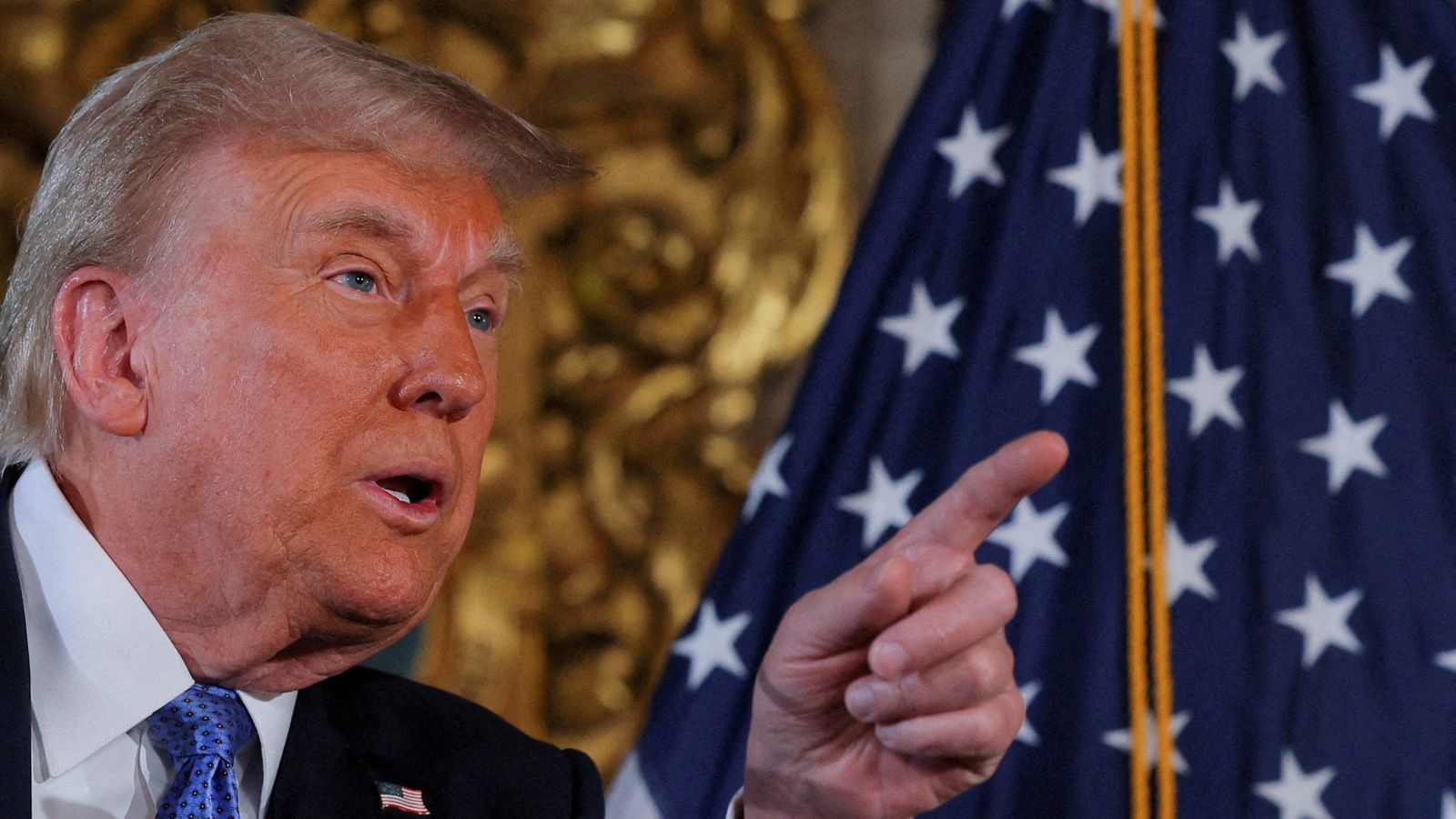
The US government could shut down in a matter of hours unless politicians agree on a spending deal.
A compromise put forward by Republicans and Democrats collapsed on Wednesday after billionaire Elon Musk publicly hit out at the proposal.
The tech tycoon’s stance was backed by president-elect Donald Trump, who wants to increase the debt ceiling, which caps the amount the federal government can borrow.
But his revamped plan to suspend the cap for two years was lost in a vote on Thursday.
However, politicians took a step closer to avoiding the shut down after a new bill was voted through the House of Representatives late on Friday – facing one more final hurdle in the Senate.
House Speaker Mike Johnson’s bill passed overwhelmingly, 336-34.
Even though the midnight deadline was missed, the vote is expected to be passed in the Senate within the hour so while funding technically lapsed there has been no government shut down.
Previously, several Republicans had said they were not interested in getting rid of the debt ceiling if they did not also cut spending.
“It’s like… increasing your credit card limit, while you don’t do anything to actually constrain spending,” said Republican Representative Chip Roy.
The outcome is a massive setback for Mr Trump and his billionaire ally Mr Musk, who has been tasked by the incoming president with pruning the federal budget.
Mr Musk, the world’s richest person, led the charge earlier in the week against the bipartisan funding deal, describing it as “criminal”.
“We’re going to regroup and we will come up with another solution, so stay tuned,” House Speaker Mike Johnson said after the vote.
But Mr Trump remained defiant, insisting Congress scrap the debt ceiling or extend it to 2029.
“Congress must get rid of, or extend out to, perhaps, 2029, the ridiculous debt ceiling. Without this, we should never make a deal,” he said in a post on Truth Social on Friday morning.
He has repeatedly urged Republicans in the House to tie up loose ends before he takes office on 20 January.
What a government shutdown means
If the Senate fails to approve a spending bill or extend the deadline a government shutdown will begin impacting federal employees and the public services they provide.
Essential government agencies like the FBI, Border Patrol and the Coast Guard would remain open.
But the Transportation Security Administration has warned travellers could face long lines at airports.
National parks and monuments would close, and while troops would stay at their posts, many civilian employees in agencies like the Department of Defence would be sent home.
Read more from Sky News:
King’s cancer treatment will continue in 2025
‘Prince of Darkness’ named new US ambassador
Sometimes federal workers are furloughed, meaning they keep their jobs but temporarily don’t work until the government reopens.
Other federal staff may stay on the job but without pay, with the expectation they would be paid back in full once the government reopens.
Courts would also be affected, with civil proceedings paused, while criminal prosecutions continue.
Automated tax collection would stay on track, but the Internal Revenue Service would stop auditing tax returns.
The last government shutdown – the longest in history – took place in December 2018 and January 2019 during Mr Trump’s first term in The White House.











